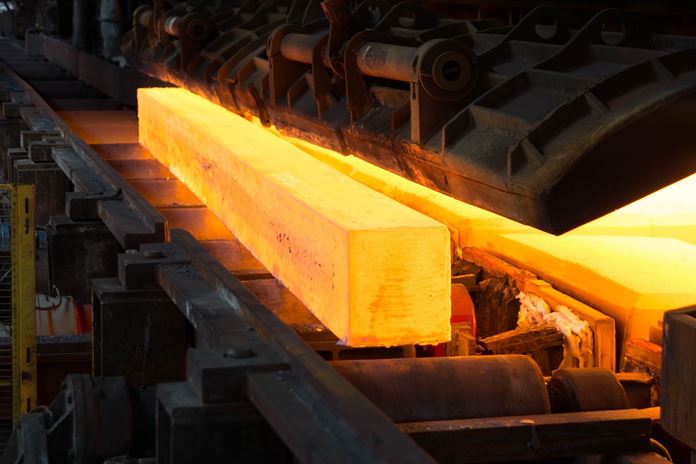Established across the entire automotive value chain:
Swiss Steel Group with its Steeltec plant, bright steel manufacturer Andernach & Bleck GmbH & Co. KG, steel trading company Heine + Beisswenger Group, electromagnet manufacturer Magnet-Schultz GmbH & Co. KG and technology group ZF Friedrichshafen AG have agreed to reduce their CO2 emissions as part of a pilot project along the entire value chain in the automotive industry.
CO2-optimised steel production
With the project partnership, the companies aim to significantly reduce the product carbon footprint for an electromagnetic actuator (selector actuator, commercial vehicle transmission actuator) used in the automotive/truck sector. The partners can tap into considerable reduction potential through CO2-optimised steel production in the electric steel plant at Swiss Steel, improved material and energy use in the drawing process at Andernach & Bleck, low-CO2 prefabrication and logistics by Heine + Beisswenger, and adapted turning and assembly processes at Magnet-Schultz and ZF. Thanks to a holistic approach to all purchased parts, including the complete assembly of the actuator, the end customer can obtain reliable information on the CO2 content of the components used.
To calculate the values, all partners make their product-related CO2 balances transparent. The savings achieved are based on both measures within the framework of the respective sustainability strategies and product-related optimisation processes. For the product Dial Actuator, the 2019 CO2 emissions are compared with the current values based on the measurements from a test delivery.
In terms of products, a reduction of 35 per cent or 710 kilograms of CO2/tonne of steel could be achieved in the total value added in 2022 compared to 2019. With an annual volume of 300,000 dialling actuators and the associated steel core, the reduction amounts to around 35 tonnes of CO2 per year. This is equivalent to around 66 Berlin-London flights or the CO2 emissions of 25 cars/year. The additional measures planned by all partners will lead to a further reduction of 41 per cent — 540 kilograms of CO2/tonne — in 2024 compared to 2022.
New solutions
“The steel partnership initiated by Heine + Beisswenger supports the transformation of the German and European steel industry. We want to show that we can also achieve further CO2 savings on the raw material and supplier side for our customers in the automotive value chain. At H+B, we use new power generation and energy savings solutions and invest in low-CO2 logistics (including alternatively fuelled trucks) and production processes. The transformation of the steel industry requires shared responsibility between business and politics,” said H+B Group CEO Rainer Lindner at the launch of the partnership.
“For Swiss Steel Group, reducing the carbon footprint of the steel industry is a social obligation that we embrace with conviction. The green steel partnership is another area where we can help our customers
reduce the CO2 values of their products. Our products make a decisive contribution to this — for example, we already save around 90% of emissions per tonne of steel produced in Emmenbrücke compared to the industry average. In addition to production in the electric arc furnace and the use of steel scrap, the use of energy from Swiss hydropower at our Emmenbrücke plant will soon lead to a significant reduction in CO2 emissions. This makes Swiss Steel Group a champion in sustainability,” said Frank Koch, CEO of Swiss Steel Group.
“First of its kind”
“All the companies involved already used primary energies responsibly in the past and have worked to optimise their energy and CO2 balances. This partnership project to document and reduce CO2 emissions based on a selected product is the first of its kind. We are proud to make a significant contribution within the value chain with our drastically reduced CO2 values (2019 to 2022 reduced by approx. 75–85% depending on the article). Andernach & Bleck can show a carbon footprint for all articles produced,” says Carsten Bleck, CEO of Andernach & Bleck.
“The open and transparent exchange between all partners created a very positive dynamic in working on the topics, driven by the common goal of avoiding and saving CO2. In addition, the exchange of experience and learning effect has been very helpful in the conception and reporting of the footprint values,” said the Head of Materials Management at Magnet-Schultz, Johann Erbe.
A profound change
“The introduction of low-CO2 production processes triggers a profound change in the steel industry. Worldwide, ZF directly and indirectly processes around 2.5 million tonnes of steel every year; this illustrates the importance of steel products in reducing ZF’s ecological footprint. Innovative companies with sustainable concepts are in demand at all stages of the supply chain. Through our participation in the Green Steel Partnership, we actively support the transformation and have experienced a very focused and successful collaboration,” says Daniele Pontarollo, Head of Group-wide Materials Management at ZF. “Our goal for climate neutrality from 2040 will impact the upstream supply chain. We believe that we can only reduce emissions significantly and sustainably through creative collaboration with sustainable suppliers.”




